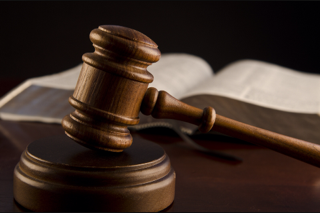Political protests in China are snuffed out almost instantly these days, but the public airing of grievances, often dubbed “mass incidents” by the Chinese Communist Party, are frequent.
People protest everything from pollution, to the building of a new factory, to labor rules. Even government estimates put them at many thousands a year.
But though these kinds of protests are sometimes tolerated and even occasionally praised by the national government, the presence of foreign reporters is rarely welcomed by Chinese police.
On Wednesday morning, we got wind that migrant worker parents were protesting at a government building in Beijing, claiming that strict residency rules mean their children can’t access public schools.
Dozens of parents held placards and chanted in front of a line of police at the entrance of the building. They say that despite promises to reform the household registration or hukou system, they struggle to get their children into school as the national exams loom.
As we approach the protest to film, the demonstrators cheer, and a policeman lunges for the camera.
“Do you have children?” a female protester asks him as she joins the tussle. “You should let them tell our story.”
“What does it matter if I have children,” the officer shouts back at her.
We are frog-marched into the courtyard of the building and told to wait. The protesters start chanting for our release.
In these situations in China, the police will generally call what we refer to as the “visa-cops.”
They come, check our IDs and figure out the situation one way or another. In my experience this means the shoot is over.
When he arrives, the visa-cop is calm and courteous and checks our credentials. He says we need a permit to talk to people and sends us on our way.
The protestors cheer as we walk out. Their protests echo behind us as we drive away.
In my more than two years in China, I have been stopped from filming on the street perhaps a dozen times: Sometimes politely; sometimes not so politely.
Even though, on paper, the rules governing reporters say we can report in most of the country (excluding Tibet), in practice, the security services here have the final say.



